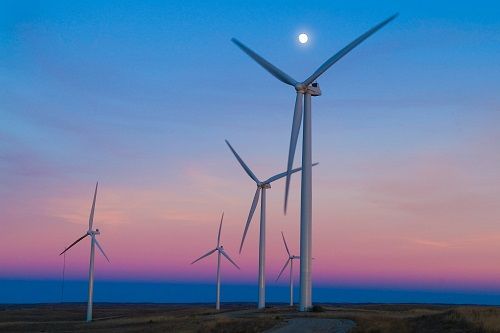It is not yet clear whether artificial intelligence will revolutionise the economy. But one thing is clear: there is no way around artificial intelligence, or AI for short, and its expansion is unstoppable. This is accompanied by a drastic increase in energy requirements for more and more data centres, the control centres of AI. ‘This demand can only be met sensibly with renewables,’ explains Markus W. Voigt, CEO of the aream Group. Like the major US tech companies, more and more companies are starting to build and utilise their own plants to produce renewable energy.
Technology shares have been on the decline recently because there are doubts as to whether the huge investments in artificial intelligence will pay off in the near future. There is no doubt, however, that AI is the future. However, its use is increasing the demand for electricity immensely and making more data centres necessary. There are currently 8,000 data centres worldwide, most of them in the USA, followed by Germany.
According to the International Energy Agency (IEA), a simple Google query requires 0.3 watt hours, while a query via the AI chatbot ChatGPT requires almost ten times as much: 2.9 watt hours. Companies such as Google and Microsoft already consume around 24 terawatt hours (TWh) a year, which is more than countries such as Ghana with a population of just over 30 million. Google's electricity consumption rose by 17 per cent last year, while Microsoft's has doubled in less than four years.
‘This trend is set to continue,’ explains Voigt. ‘That's why the big companies are investing hundreds of billions in new data centres.’ According to the IEA, the annual electricity consumption of data centres worldwide will increase from around 460 to 1,050 TWh by 2026. The technology industry is therefore faced with the problem that it needs more and more electricity, but this electricity should not have an even greater impact on companies' carbon footprints. After all, Google now emits almost 50 per cent more CO2 than it did five years ago.
Big Tech has therefore taken the solution to the problem into its own hands: Microsoft has secured most of its electricity from Germany's largest solar park in Saxony. Amazon concluded long-term power purchase agreements (PPAs) with large operators of offshore wind farms and installed solar systems on the roofs of its German logistics centres. According to the company, it has initiated more than 180 wind and solar projects in 13 European countries. Google, in turn, is now expanding its offshore wind energy projects in the Netherlands and wants to make the supply of all its data centres CO2-neutral by 2030.
‘The large corporations are just the pioneers,’ explains Voigt. This trend will also become increasingly prevalent in Germany. ‘More and more companies are starting to invest in renewable energy plants or long-term green PPAs themselves in order to ensure a reliable supply for their operations at predictable prices.’ In view of growing electricity consumption and the need to reduce CO2 emissions, there is no alternative.
PRESSEKONTAKT:
Leandra Kiebach
T: +49 (0)211 30 20 60 4-2
E: lk@aream.de
